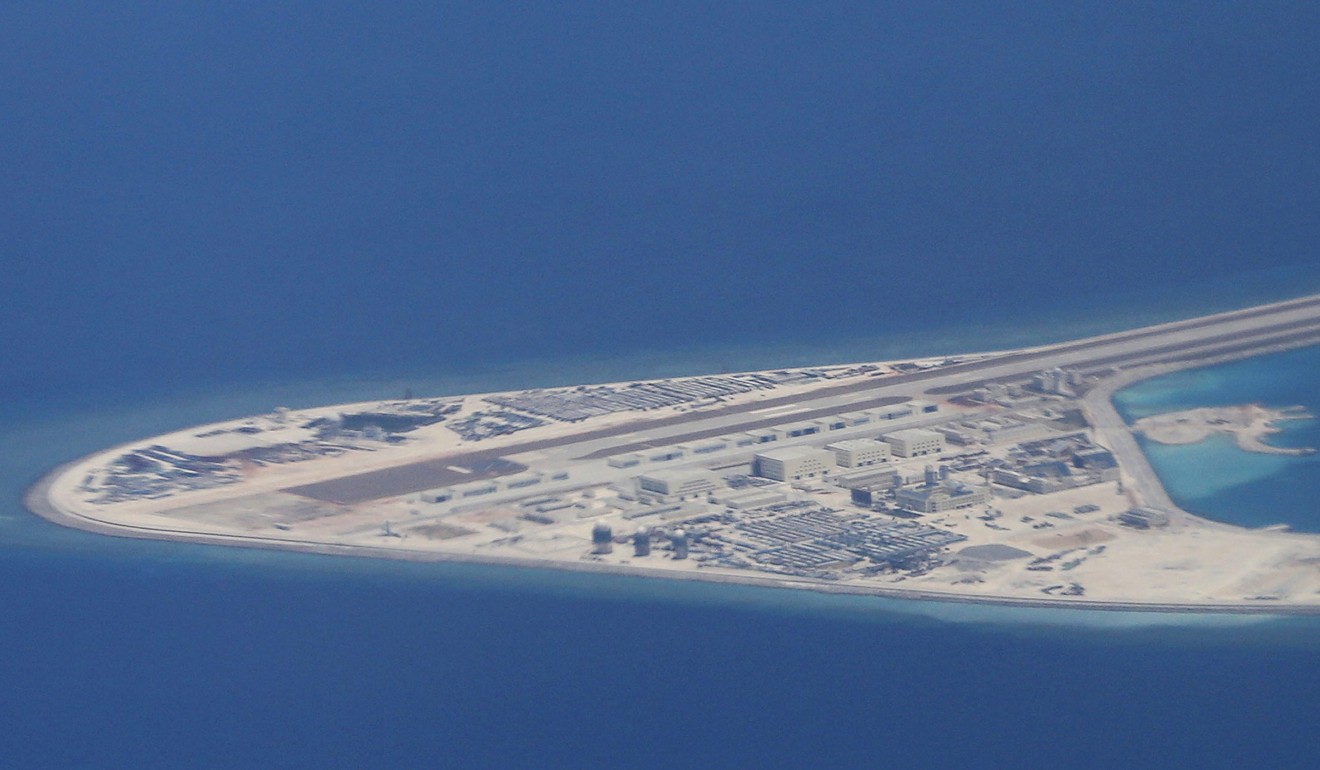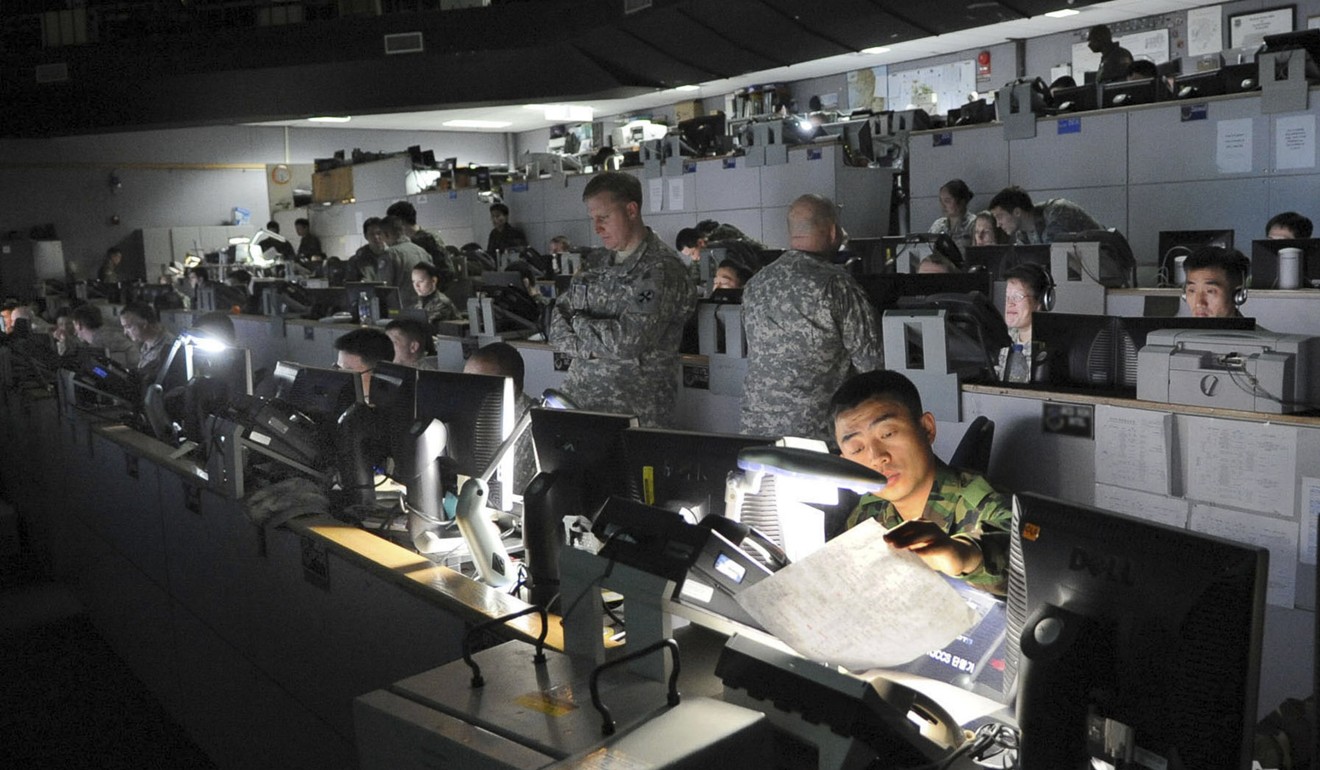
US Defence Secretary Jim Mattis tells China he is ready to listen during his first visit
Points of disagreement will be avoided on his first visit to mainland, with China’s role in denuclearisation of Korean peninsula high on the agenda
US Defence Secretary Jim Mattis has laid out plans for a less contentious, more open dialogue with Chinese leaders as he travels to Asia, less than a month after he criticised Beijing at an international conference for its militarisation of islands in the South China Sea.
Speaking to reporters on his plane on Sunday en route to a stop in Alaska, Mattis avoided any of the sharp criticism of China that he had voiced recently.
Instead, he insisted that he is going into the talks with Chinese leaders without any preconceived notions, and wants to focus on larger, more strategic security issues.
According to officials, a key topic of the discussions later this week will be the denuclearisation of the Korean peninsula and the role China can play, considering its long-standing friendship with North Korea.
“I want to go in right now without basically poisoning the well,” said Mattis. “I’m going there to have a conversation.
“I do not want to immediately go in with a certain preset expectation of what they are going to say. I want to go in and do a lot of listening.”
Mattis will arrive in Beijing on Tuesday for a three-day visit, said Chinese defence ministry spokesman Ren Guoqiang on Monday. Ren said Chinese state and military leaders would meet Mattis.
Ren Xiao, an international relations expert at Fudan University in Shanghai, said it is possible that Chinese President Xi Jinping will meet Mattis personally, reciprocating the courtesy after US President Donald Trump’s personal meets with Xi’s economic envoy Liu He, the Chinese Vice-Premier, during his trip to Washington.
“Current Sino-US bilateral ties are not healthy, with many Americans perceiving China as their biggest enemy,” Ren said, referring to the countries’ trade rows.
“It’s very important for both countries’ leaders to have face-to-face meetings at such a sensitive time, which will help both sides understand each other better and help reduce their disagreements.”

Zhang Liangui, a North Korea specialist with the Central Party School in Beijing, said Mattis’ visit to Beijing showed Washington was prepared to take action to push for North Korea’s denuclearisation.
“The US is the sole country capable of playing the key role pushing North Korea to enact complete, verifiable, irreversible denuclearisation (CVID), which should be implemented as soon as possible,” Zhang said, adding that there is a “very dangerous opinion among some Chinese scholars to allow Pyongyang to spend 15 years achieving CVID”.
“Who knows what levels of nuclear technology the North will develop 15 years later, which will definitely create another big problem. If Trump’s administration is determined to achieve the CVID, then it needs to reach consensus with China.”
After China, Mattis will travel to South Korea and Japan to meet his defence counterparts as well as other national leaders on a tour of Asia that Zhang said would focus on denuclearisation.
Mattis said on Sunday that the Pentagon had cancelled two Marine military exchanges this autumn as well as the larger Ulchi Freedom Guardian exercise – the annual US-South Korean exercise that began in 1976 – because the defence department considered them to be consistent with what President Donald Trump and North Korean leader Kim Jong-un had agreed on at their summit in Singapore this month.

The US has also long been frustrated that China does not share much information about any war scenarios or other contingencies it has in place in the event of a conflict on the Korean peninsula or the collapse of the North Korean government.
By improving its relationship with Beijing, Washington believes it could better prepare for any problems and be able to coordinate more effectively with China.
This is Mattis’ first trip to mainland China, both personally and as defence secretary. The last Pentagon chief to visit China was Chuck Hagel in April 2014.
But both Mattis and his immediate predecessor, Ash Carter, have spent a great deal of time in Asia, in the wake of the US’ much-vaunted increased emphasis on the Indo-Pacific region.
Mattis has travelled to Asia seven times during his 17-month tenure as defence secretary, and this will be his third visit so far this year.
His more diplomatic tack reflects the US administration’s recognition of China’s crucial influence on Korea as negotiations move ahead to get North Korea to abandon its nuclear programme.
One senior US official said that while Mattis will willingly lay out the United States’ position on China’s military build-up in the South China Sea and other points of contention, the Pentagon chief doesn’t want to open the conversations with “the irritants”.
Instead, the goal is to have higher-quality talks about the two countries’ military relationship, said the official, who spoke on condition of anonymity to discuss internal deliberations on the trip.
Last month, however, Mattis abruptly disinvited China from a multinational exercise in the Pacific that will begin in a few days, in retribution for Beijing putting weapons systems on man-made islands in the South China Sea.
And days later he publicly threatened “much larger consequences in the future” if the militarisation continued. China has recently deployed anti-ship missiles, surface-to-air missiles, electronic jammers and other equipment on the disputed Spratly Islands, and landed a bomber aircraft at Woody Island.
China says it is within its rights to build up defences on islands in the South China Sea that it believes are its sovereign territory.
Many nations fear that Beijing will use the construction on the islands to extend its military reach and potentially try to restrict navigation in the South China Sea.
It is all but certain that the Chinese will raise those issues with Mattis, as well as Beijing’s long-held opposition to increasing US contacts with Taiwan. China claims the self-ruled island as its territory.


